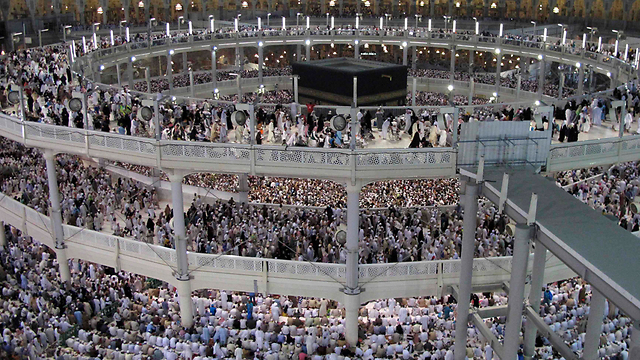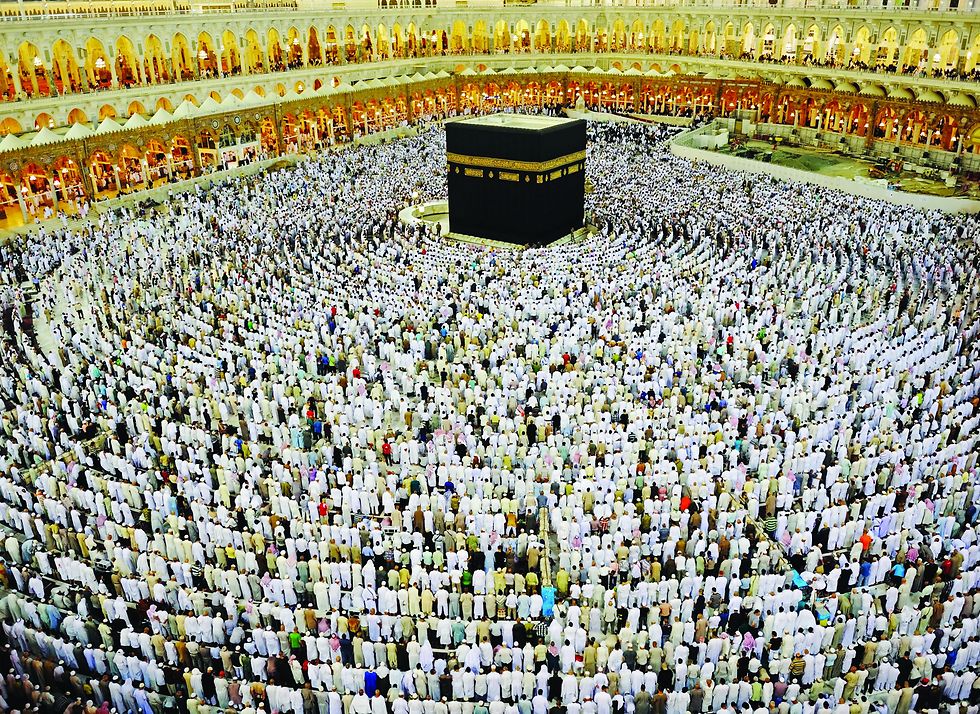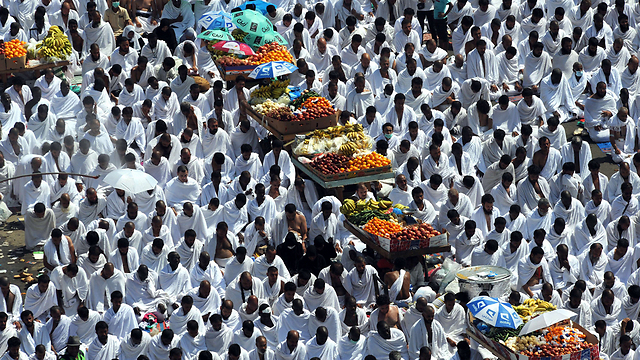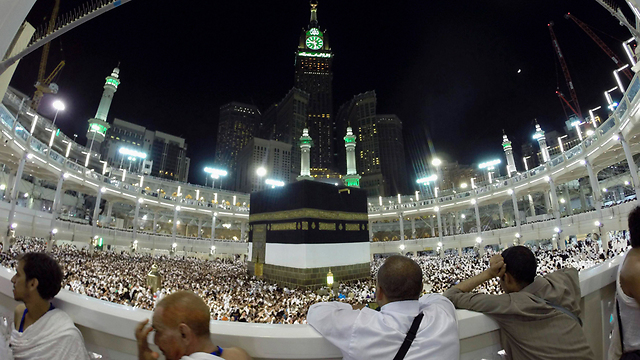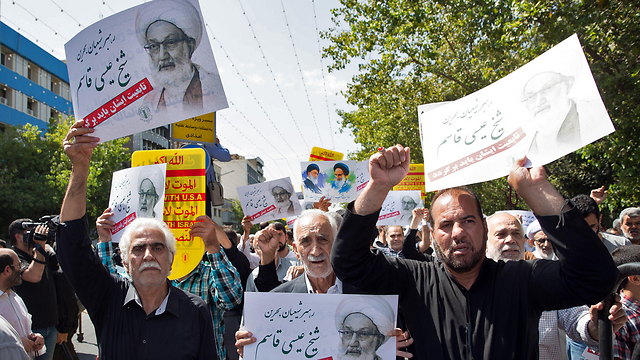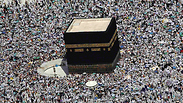
A previous hajj
צילום: רויטרס
Hajj begins in Mecca, one year after deadly crush
Over 3 million Muslims have come from over the world to participate in the pilgrimage, one year after a stampede that killed over 2,000; Saudi authorities are taking precautions to prevent similar incidents.
Mecca — At least three million faithful coming from the entire world began the five-day hajj pilgrimage to Mecca, on Saturday. This is the peak of the Muslim calendar and was marked last year by a deadly crush that killed at least 2,297.
The hajj is one of the five pillars of Islam, and all able-bodied Muslims are required to perform it once in their lifetime. The hajj is seen as a chance to wipe clean past sins and start fresh. Many seek to deepen their faith on the hajj, with women taking on the Islamic hair covering known as "hijab" upon returning from the pilgrimage.
Despite the physical challenges of the hajj, many people rely on canes or crutches and insist on walking the routes. Those who cannot afford the hajj are sometimes financed by charities or community leaders. Others save their entire lives to make the journey. A few even walk thousands of miles by foot to Saudi Arabia, taking months to arrive.
The hajj traditionally begins in Mecca, with a smaller pilgrimage called the "umrah", which can be performed year-round. To perform the umrah, Muslims circle the Kaaba counter-clockwise seven times while reciting supplications to God, then walk between the two hills traveled by Hagar. Mecca's Grand Mosque, the world's largest, encompasses the Kaaba and the two hills.
Before heading to Mecca, many pilgrims visit the city of Medina where the Prophet Muhammad is buried and where he built his first mosque.
Logistics
Handling the huge influx of pilgrims, providing them with lodging and transport and maintaining security is an enormous logistical challenge. Saudi Arabia's handling of this is being closely scrutinized this year.
Riyadh has been the object of harsh criticisms ever since the deadliest stampede in the hajj's history on September 24, 2015, during the Stoning of the Devil part of the pilgrimage, which will take place this year on Monday.
At least 2,297 faithful perished, according to data compiled from foreign governments' calculations. Saudi Arabia announced 769 deaths, and the results of an investigation headed by the authorities have still not been communicated, nearly a year later.
The identification of victims was difficult, and governments complained about the difficulty in identifying their citizens.
To avoid a similar tragedy from taking place, Riyadh has assured all that it has taken new measures, notably the creation of an electronic bracelet bearing the personal data of each pilgrim. No figure has been given, however, on the proportion of pilgrims equipped with this bracelet. The GPS bracelet aims to give authorities an alert if over-crowding starts to form. The Saudi Arabian government has sent at least 100,000 troops to the holy sites in Mecca where the annual Muslim pilgrimage of Hajj officially started on Saturday, with millions of people moving together from one holy site to the other.
The measure is part of the efforts to prevent a repetition of last year's tragic stampede that left hundreds dead.
Those who were in the city on Friday got a sense of how crowded the Hajj could become. The holy mosque was at its maximum capacity of two million worshippers during the Friday prayer. As it ended, visitors to the holy mosque started to move chaotically, each in their own direction.
However, as soon as a bottleneck started to form, dozens of security forces intervened to manage the flow of pedestrians.
It is one of the world's largest human gatherings. Many things could go wrong, but most pilgrims were not worried.
Iranians absent
Notably absent this year are Iranian pilgrims. Last year, some 64,000 Iranians took part in the Hajj, but disputes with the Saudi government prompted Tehran to bar its citizens from taking part this year.
Saudi Arabia has blamed Iranian officials for the decision and suggests it was politically motivated to publicly pressure the kingdom. Iran says Saudi "incompetence" caused last year's crush and stampede that killed more than 460 of its citizens.











